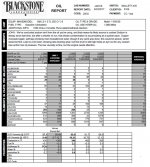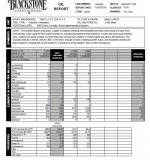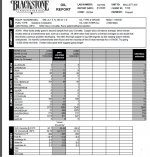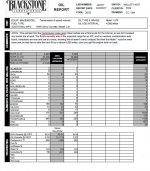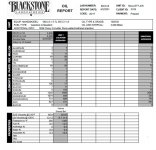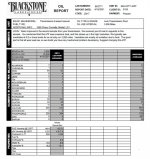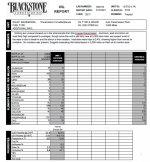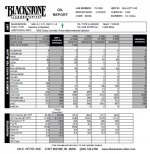teamzr1
Supporting vendor
A good way to know how well your engine, tranny, rear end or even the power steering fluid is doing is to have used oil/fluid tested, analyzed and testlab sent you as results report
I have used the same testlab for about 20 year.
They keep on file all your past results which if you need later you can download it, and it helps so when they analyze they can compare with the past results
Here are 1 results of the lab testing the engine oil :
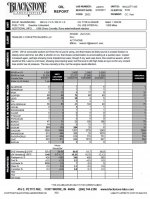
Here is some of what they do in testing :
Oil analysis is a quick way to gauge the health of an engine by looking at what’s in the oil.
What does a standard analysis include?
In our standard oil analysis, we perform four tests:
There are more specialized tests we can perform on an oil sample, depending on your needs. For a complete list of the tests we do and their cost, go to our Tests page.
Attached is a PDF that explains the test results
I have used the same testlab for about 20 year.
They keep on file all your past results which if you need later you can download it, and it helps so when they analyze they can compare with the past results
Here are 1 results of the lab testing the engine oil :

Here is some of what they do in testing :
Oil analysis is a quick way to gauge the health of an engine by looking at what’s in the oil.
What does a standard analysis include?
In our standard oil analysis, we perform four tests:
We can perform our standard oil analysis on any sample of oil, whether it’s engine oil, transmission oil, an oil-based additive, gear oil, hydraulic oil, power steering fluid, biodiesel, or another type of oil.Spectral exam:
In the spectral exam, we take a portion of your oil sample and run it through a machine called a spectrometer, which tells us the levels of metals and additives that are present in the oil. To learn more about the elements we look at and where they come from in your oil, go to our Report Explanation page.
Insolubles test:
The insolubles test measures the solids present in the oil. The solids are formed by oil oxidation (when the oil breaks down due to the presence of oxygen, accelerated by heat) and blow-by past the rings. This tells you how good a job the oil filter is doing, and to what extent the oil has oxidized.
Viscosity test:
The viscosity measures the grade, or thickness, of the oil. Whether it’s supposed to be a 5W/30, 15W/40, or some other grade, we know (within a range) what the viscosity should be. If your viscosity falls outside that range, there’s probably a reason: the oil could have been overheated, or contaminated with fuel, moisture, or coolant.
Flash Point test:
The Flash Point test measures the temperature at which vapors from the oil ignite. We know what temperature the oil should flash at. If it flashes at or above that level, the oil is not contaminated. If the oil flashes lower than it should, then it’s probably been contaminated. Fuel is the most common contaminant in oil.
There are more specialized tests we can perform on an oil sample, depending on your needs. For a complete list of the tests we do and their cost, go to our Tests page.
Attached is a PDF that explains the test results

